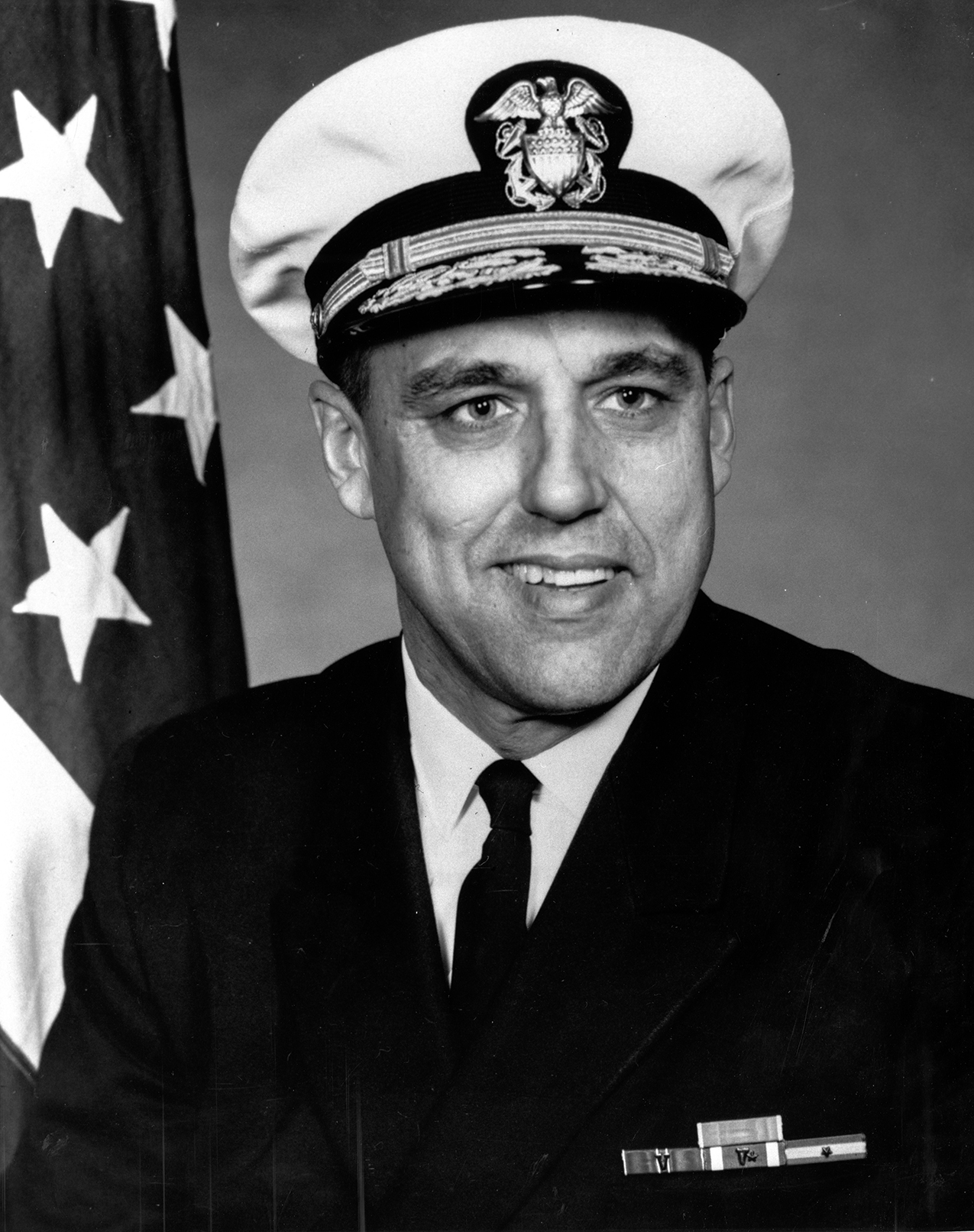
Peet, Raymond E., Vice Adm., USN (Ret.)
(1921– )
Following graduation from the Naval Academy in 1942, Peet had several wartime tours in destroyers, including duty in the USS Converse (DD-509), one of the "Little Beavers" of Destroyer Squadron 23. Following postgraduate education in ordnance and duty with the Operational Development Force and Naval Proving Ground Dahlgren, Peet was gunnery officer of the USS New Jersey (BB-62) and then commanding officer of the USS Barton (DD-772). He did so well in the latter that he was tapped to become aide to the Chief of Naval Operations, Admiral Arleigh Burke. He provides a detailed description of his difficulties in working with Burke. Peet then won in a competition against Commander E.R. Zumwalt to become commissioning skipper of the first nuclear-powered destroyer, the USS Bainbridge (DLGN-25).
Peet's frequent conflict/ competition with Zumwalt crops up time and again in the oral history. Peet later served in the Office of the Secretary of Defense and was fired from his first flag assignment--the DX-DXG program--because he would not bend to the political will of his civilian seniors. Following two amphibious assignments, including one which oversaw survival training for Vietnam, Peet became director of the SecNav's Office of Program Appraisal. As Commander First Fleet in the early 1970s, Peet experimented with the concept of operating a numbered fleet from a headquarters ashore.
In his final active duty tour, Admiral Peet was Director Security Assistance Agency, concerned with foreign military sales. This memoir is candid throughout and offers interesting insights on such topics as Admiral Hyman Rickover, naval nuclear power, and the disadvantages of early promotion in the Navy.
About this Volume
Based on seven interviews conducted by Etta-Belle Kitchen from May 1978 through July 1978. The volume contains 548 pages of interview transcript plus an index. The transcript is copyright 1984 by the U.S. Naval Institute; the transcript requires the written permission of the interviewee to quote or cite in published works.



